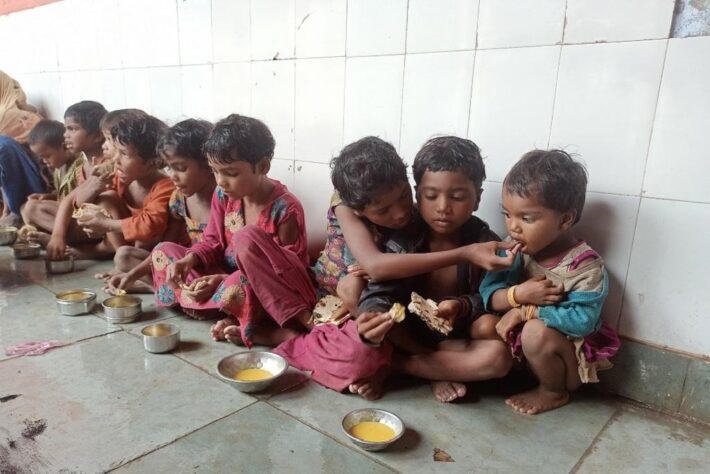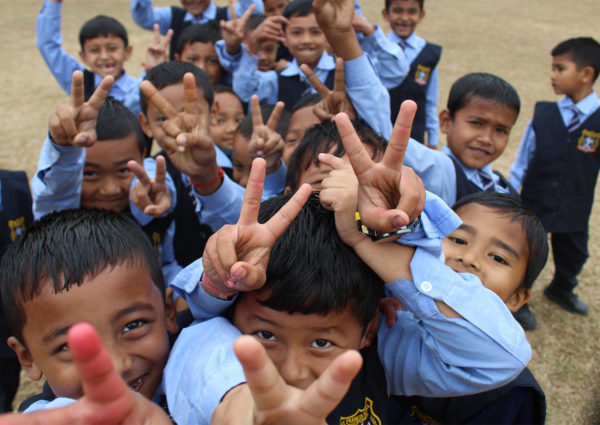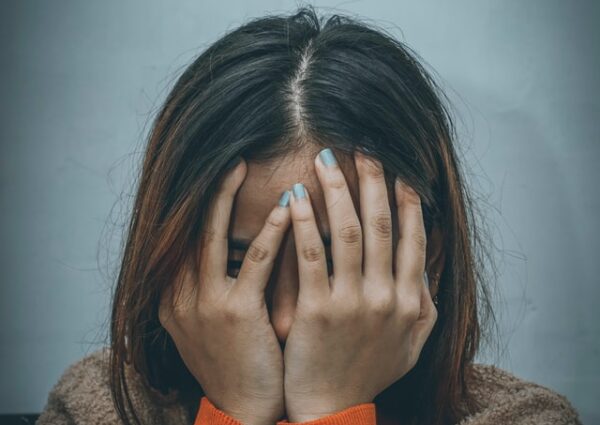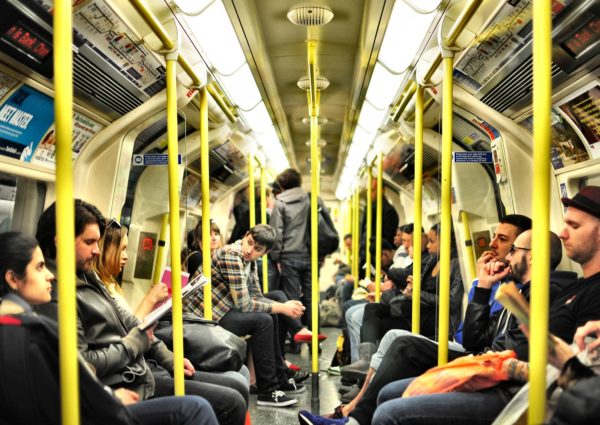Can/Should India resolve poverty?
The above picture puts me to shame. It brings tears to my eyes but also challenges me. The young girl is feeding, maybe her younger sister, or even a neighbor, before she herself eats. And, what am I doing? What are we doing to help the poor? Can’t I share my food with at least one?
India, along with Nigeria, is considered to have the largest number of the poor in the world. India tops the global list in terms of absolute number of poor, going by the last national survey of 2012-13. The country accounted for 139 million of the total 689 million people living in poverty in 2017. A recent global report from the World Bank said, ‘…India has stopped counting its poor. The lack of recent data for India severely hinders the ability to monitor global poverty.” We as a nation have stopped counting our poor. And mind you, if you are not counted then you don’t count.
The word ‘development’ mesmerizes us, the middle class. As a matter of fact every day we are bombarded with the same but we forget that there is a group like the above living just in our backyard. Our conversations about development becomes so hollow. Every day our rulers preach to us of the necessity of development and the need to sacrifice. But who sacrifices? The economically and socially poor for the development of the rich.
It is, thus, imperative that if the world has to meet its United Nations-mandated Sustainable Development Goal (SDG) I, to eradicate poverty by 2030, India has to achieve this goal first (Richard Mahapatra, 2020). It is thus a double responsibility for Indians, to not only advocate for the poor but also use our ‘widow’s mite’ to feed regularly at least one hungry person.
In this advocacy work, we must first challenge the ‘Trickle-down Theory’ that is used to rationalize the focus on development. The simple argument of the theory is that the more the country develops, the more benefits will trickle down to the poor. However, if the Coronavirus has taught us anything then definitely it is exactly the opposite. While multinationals improved their profits more than they expected, the number of poor also increased. For instance, Amazon improved its income by $5.2 billion – double its net income from a year prior. And the number of the poor has increased by at least 150 million as per World Bank estimates. In fact, researchers found that when the top earners in society make more money, it actually slows down economic growth. On the other hand, when poor people earn then society as a whole benefits. The researchers also calculated that when 20% of the richest increase their income by one percentage then the annual rate of growth shrinks by nearly 0.1% within five years. Research (analysis of over 150 countries) by the International Monetary Fund has found that wealth does not trickle down from the rich to the poor. By contrast, when the 20% of the lower earning group see their income grow by one percentage point, the rate of growth increases by nearly 0.4% over the same period (Alenna Petrof 2015).
Therefore, a strong educational effort to confront the lies of the Trickle-down Theory is our first role. Not that it would be easy because most educated people seem to think along those lines. The advocacy work should also focus on demanding the government to count the poor. The discourse of development without counting the poor is so hollow. You cannot talk of a developed India without counting who needs help to at least have three nutritious meals a day. And let us not forget the simple principle, ‘the strength of a chain is its weakest link’.
And if you think it is only an act of charity to feed the poor then let me tell you that it is more than that. Well, it is actually an act of justice to be able to fulfil our constitutional promise made 75 years ago. Our promise ‘to secure justice, liberty, equality to all citizens and promote fraternity to maintain unity and integrity of the nation’. This begins with food security.
When the powers that be tend to neglect the poor, and support the corporates who are out to make profit at any cost, then the responsibility of the ordinary citizen becomes graver. Here again the middle class have a disadvantage. Many of them are employed and handsomely paid by corporates and therefore it is not easy for them to critique the very branch on which they sit. Only a futuristic and compassionate outlook can bring about changes. There is enough evidence to show that the present model of development is not sustainable. But, the government structures all over the world seem to be negligent and look only for immediate profit. The future of the planet or our children do not seem in the radar of those planners and executives.
The challenges are huge but let us advocate and feed too. Mother Teresa once said, “If you cannot feed a hundred people, just feed one!”
Similar Posts
-
Moral revolution Vs Man eating dead dog : Which is better? – M.K. George SJ
I just watched a social media clipping which shows this appalling scene: A hungry young man sitting
-
Does the odium rests on the ordinary Citizen? – M.K. George SJ
It goes without saying that truth is not readily visible to the naked eye in our day and age. There
-
Beware, Facebook and WhatsApp are no angels! – M.K. George SJ
WhatsApp has become an integral part of all our lives; many of us cannot live without it. Probably t
-
My Cry for Ukraine – M.K. George SJ
Cry for Ukraine, cry for the world. A brochure about Ukraine, a country known for its diverse yet be
-
The call to change – three concrete ways – M.K. George SJ
I could think of three concrete ways of being a change in the context of today’s pandemic: Be a Good












Bhanu
Nice article. Great work